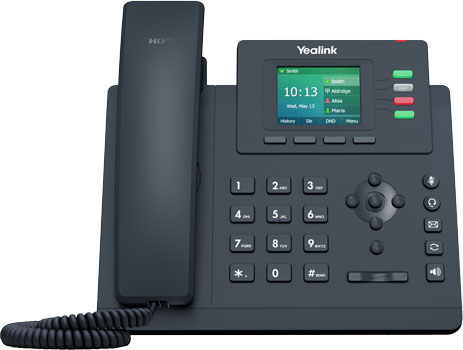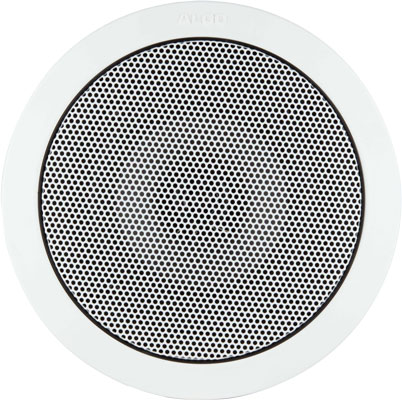Here’s a question for you: Can you use a VoIP phone as a paging microphone?
We’re not going to keep you in suspense. The answer is: Yes.
Paging systems can be integrated with VoIP phone systems, including unified communications platforms and cloud phone services. This integration allows you to use the same phone for calls and for broadcasting over the PA system.
This blog provides a quick introduction to the topic. Let’s take a look.
How to page from a VoIP phone
VoIP phones are set up as extensions on VoIP phone systems. Paging systems also get set up as extensions on a VoIP phone system. Because a paging system gets set up as an extension like a phone does, you can simply call the designated extension assigned to the paging system to make the page, thus using your phone like a paging system microphone.
You can customize one of the phone’s feature keys as a dedicated key for paging — just like you’d have a speed dial key to call your favorite pizza place.
Using an IP paging adapter, you can integrate analog paging endpoints into an IP paging system, so you can call analog paging speakers as easily as calling native IP paging speakers. For more information on this topic, check out our blog: Can You Convert Analog Paging Speakers to IP Paging Speakers?
You can use your VoIP phone to call the entire PA system or specific zones. There are two basic types of IP paging: unicast and multicast.
Unicast means the phone sends a page to a phone system, which then relays the page as a separate call to each paging extension in the system. It’s called “unicast” because it sends the page to individual extensions — one call for one extension.
Multicast works in the opposite direction. Rather than the phone system sending the page to endpoints, the endpoints “listen” to a preset multicast IP address. When the phone sends a page to this IP address, the endpoints “hear” it and broadcast it. Using multicast means only one call for a whole system, as compared to unicast.
Multicast also simplifies zone paging. You can set up all the speakers in a zone to listen to an IP address and the speakers in another zone to listen another IP address. They will only broadcast the calls sent to the IP addresses they’re listening to. You can then use your VoIP to call specific zones as different extensions — an efficient solution for what was traditionally a burdensome and often pricy system to install, maintain and use. (This isn’t the only solution to zone paging with a VoIP phone, but it is a good one.)
If you want a more in-depth look at VoIP paging systems, check out our clear, detailed IP Paging Systems Buyer’s Guide.
The benefits of using a VoIP phone as a paging microphone
One of the primary benefits of using a VoIP phone as a paging microphone is that you need one less device in the office. It can save money, reduces clutter and streamlines your technology ecosystem. Because you’re integrating the public address system with the phone system, you’re simplifying your whole communications infrastructure.
Many — if not most — VoIP phone systems, unified communications platforms and cloud phone services can be used for IP paging. For example, if your organization uses Microsoft Teams, you can send pages through Microsoft Teams. We covered one way to do this in a recent blog: Using Algo IP Endpoints with Microsoft Teams.
Using a VoIP phone can also lead to improved voice quality on pages. Most VoIP phones nowadays support wideband audio or better. “Wideband” means that more of the audio spectrum is reproduced, which means that your voice will sound fuller. Improving audio quality has been shown to improve comprehension — a big plus. If you’re used to traditional paging microphones, a VoIP phone can be revelatory.
Because IP paging systems run over internet technology, you can also use a VoIP phone to call distributed paging systems. For example, if you have a large business campus with multiple buildings, you can have a single IP paging system for the whole campus — only one phone required to call any and every location. Traditional paging systems, however, require dedicated cabling and infrastructure, which limits their physical extent.



